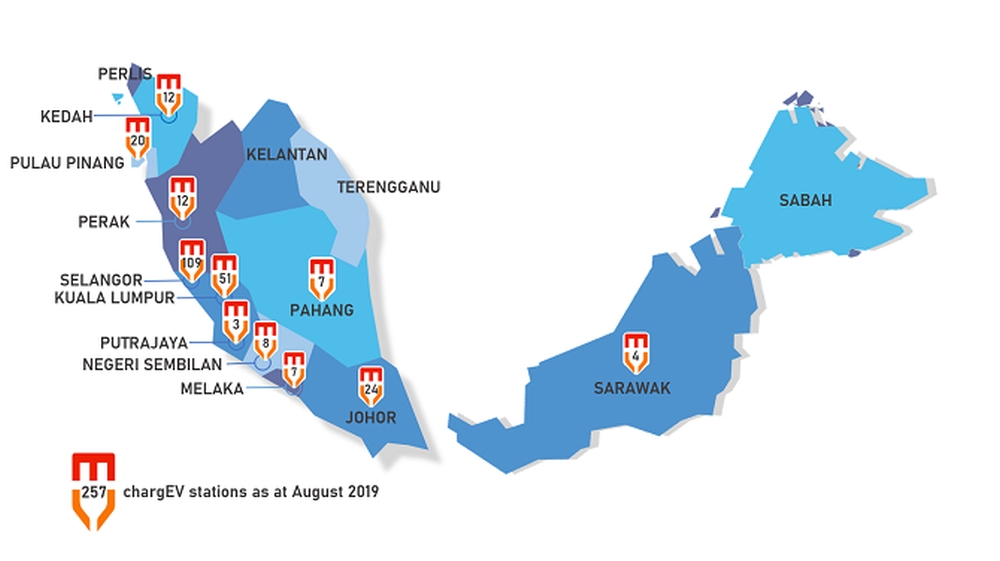The BMW iX xDrive40 made waves in Malaysia recently. Not only was it the “fastest-selling” electric vehicle (EV) in Malaysia, with over 100 units booked in about a week, but some are even calling it a bargain for what you were getting for the price. Even with the drawbacks of owning an EV in Malaysia, the interest is clearly there.
And BMW Malaysia is definitely going to capitalise on that interest with the BMW i4 eDrive40. While this new EV hasn’t been officially launched in Malaysia they’re already taking registrations of interest on the BMW Malaysia website, and you can even “start designing your BMW i4 model now”.
For those who are unfamiliar, the i4 is BMW’s latest fully electric vehicle which boasts 340hp and 430Nm of torque. This translates to a 0-100km/h time of just 5.7 seconds and an electronically limited top speed of 190km/h. With a full charge, you’re looking at a range of up to 590km and it also supports up to 200kW fast charging. This means you go from a 10% charge to an 80% charge in just 31 mins, or get 164km of range in just 10 minutes.
There will also be a BMW i4 M50 M Performance variant for those who desire a little more power. This model packs 544hp and 794Nm of torque, which means it’ll hop from 0-100km/h in just 3.9 seconds. That said, the i4 M50 does lose a little bit of range, topping out at just 521km.
Needless to say, the BMW i4 is certainly an attractive proposition—whether you like the new kidney grille design or not. But the thing that I feel I need to point out is that when you buy an EV in Malaysia, you’re not just buying a car. And when it comes to the EV ecosystem here, Malaysia’s certainly got some developing left to do.

Obviously, I don’t claim to be an expert in this field, but even I have access to Google, and the reports that I see about the state of EVs in Malaysia isn’t particularly promising. For starters, we’re reportedly far behind our neighbouring countries when it comes to charging infrastructure, most of which are located along the west coast of Peninsular Malaysia.
Because of this, the first thing everyone looks at when they consider EVs isn’t the performance or the trim level—it’s the range. Thankfully, new EVs are doing pretty good on range, with the new BMW i4 and iX all able to go well over 400km between charges. But, while that should be more than enough for your daily commute, it does limit your ability to travel out of state (when restrictions eventually lift), requiring that you plan your route far more carefully than you would have to in a petrol-powered vehicle.
There is good news, however. Malaysia’s EV infrastructure was recently given a boost as the Malaysa Automotive Robotics and IoT Institute (MARii) and the Malay Vehicle Importers and Traders Association of Malaysia (PERKEMA) announced a plans to set up a network of 1,000 DC charging stations by 2025.
On top of that, BMW Malaysia have said themselves that they’re pretty much all-in on EVs and have been working with various partners to develop the charging network in Malaysia. Recently, for example, they’ve launched Reserve + Recharge bays in partnership with Shell and ParkEasy—bringing more charging bays to shopping malls around KL.
BMW Malaysia also said in their recent BMW i International Media Roundtable that these charging stations will not be exclusive to BMW vehicles in Malaysia, because they felt that it was an important step in the development of EVs in the country. On top of that, the carmaker has big plans in motion for the development of EVs in Malaysia over the next six to eight months, but was unable to share anything specific at this time.
It’s certainly good that a major manufacturer like BMW is pushing hard towards the development of EVs and the necessary infrastructure, but therein lies another problem that really stymies the growth of EVs here: The cost of entry.
Remember how at the start of this article, I referenced a PaulTan.org article claiming that the BMW iX was a “bargain”? Well, for reference, that particular EV has prices starting at RM419,630, which means that unless you’re in the have-have economic bracket (aka T20), “a bargain” doesn’t come remotely close to being cheap.
Still, that makes sense. BMWs are luxury vehicles, and there’s really no such thing as a “cheap” BMW. But, where are the cheap EVs? Where are the ones that you and I can afford? Even something like a Nissan Leaf starts from RM181,263.
The short answer? There aren’t any, and it’s very unlikely that we’ll get them anytime soon due to a myriad of reasons including expensive manufacturing costs, lack of incentives, and convoluted legislation. The long answer? Well, I’d recommend reading this article by Hafriz Shah.
There’s a lot of work left to be done before EVs become a realistic thing to own in Malaysia. And that’s quite upsetting because I think thoughtfully designed EVs will end up becoming more appealing to a wider demographic—people who perhaps weren’t interested in cars in the first place. Whether they’d be interested in them because of the technological aspect or the idea that they might be doing less harm to the environment, I think that it’s good for the industry.
But it can’t just be BMW Malaysia pushing forward. It’s gonna take more than that.